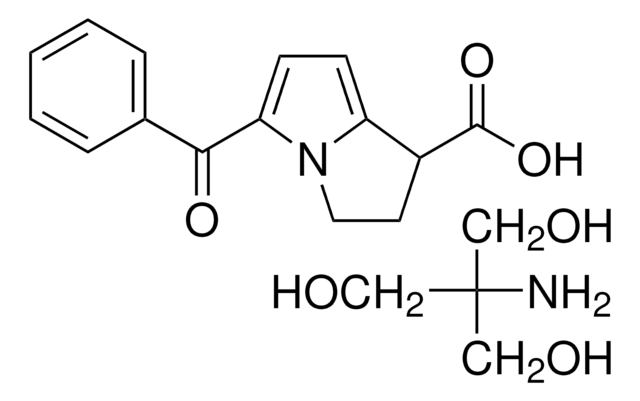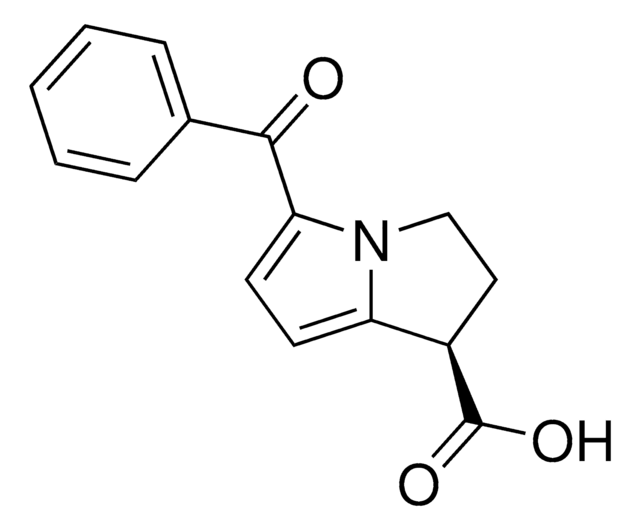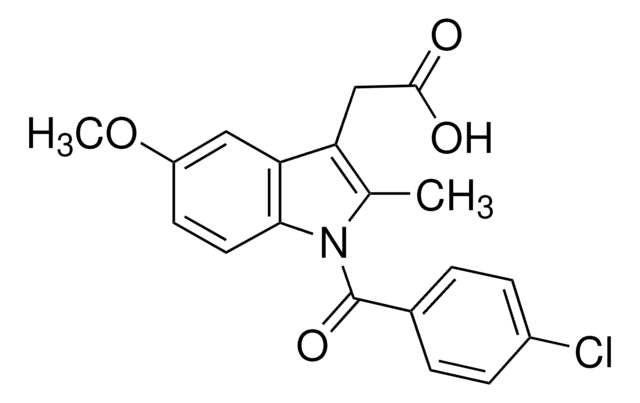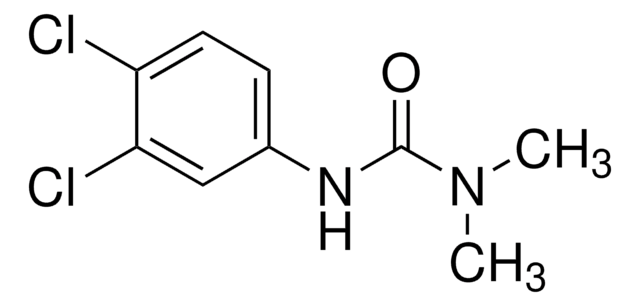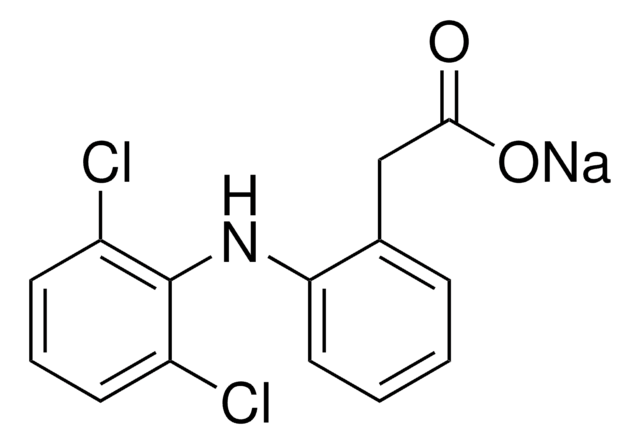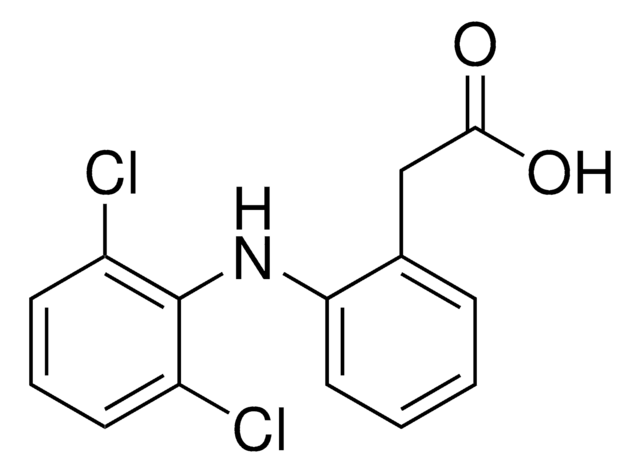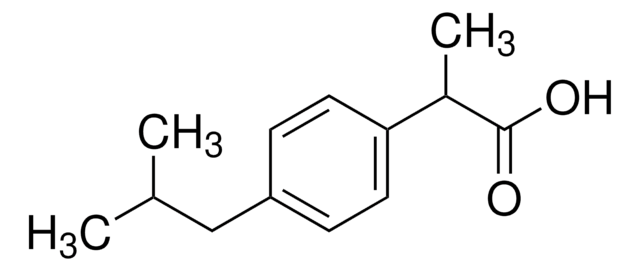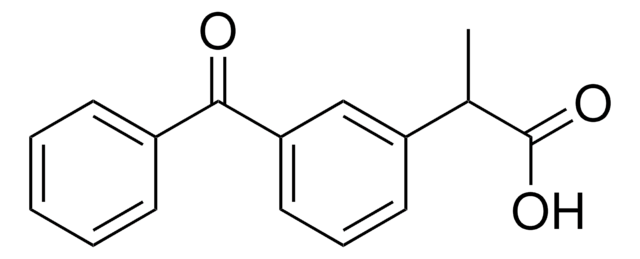K1136
Ketorolac tris salt
≥99%, crystalline
Synonym(s):
(±)-5-Benzoyl-2,3-dihydro-1H-pyrrolizine-1-carboxylic acid tris salt, Toradol
About This Item
Recommended Products
biological source
synthetic (organic)
Quality Level
Assay
≥99%
form
crystalline
solubility
H2O: soluble 15 mg/mL, clear, colorless to faintly yellow (stable at least one month at −20 °C.)
storage temp.
room temp
SMILES string
NC(CO)(CO)CO.OC(=O)C1CCn2c1ccc2C(=O)c3ccccc3
InChI
1S/C15H13NO3.C4H11NO3/c17-14(10-4-2-1-3-5-10)13-7-6-12-11(15(18)19)8-9-16(12)13;5-4(1-6,2-7)3-8/h1-7,11H,8-9H2,(H,18,19);6-8H,1-3,5H2
InChI key
BWHLPLXXIDYSNW-UHFFFAOYSA-N
Gene Information
human ... PTGS1(5742) , PTGS2(5743)
Looking for similar products? Visit Product Comparison Guide
Application
- as an intraperitoneal injection in mice to study the effect of ketorolac on expression of c-Fos (a human proto-oncogene) in ARC (arcuate nucleus of the hypothalamus) POMC (proopiomelanocortin) -EGFP (enhanced green fluorescent protein) neurons
- to treat mice in order to show that this treatment does not prevent IL-1β-mediated inhibition of Agouti-related protein (AgRP) secretion from murine hypothalamic explants
- as an analgesic medication to treat rats induced with acute inflammatory joint injury by injecting carrageenan into the ankle
Biochem/physiol Actions
Caution
Signal Word
Danger
Hazard Statements
Precautionary Statements
Hazard Classifications
Acute Tox. 3 Oral - Eye Irrit. 2 - Skin Irrit. 2 - STOT SE 3
Target Organs
Respiratory system
Storage Class Code
6.1C - Combustible acute toxic Cat.3 / toxic compounds or compounds which causing chronic effects
WGK
WGK 3
Flash Point(F)
Not applicable
Flash Point(C)
Not applicable
Personal Protective Equipment
Certificates of Analysis (COA)
Search for Certificates of Analysis (COA) by entering the products Lot/Batch Number. Lot and Batch Numbers can be found on a product’s label following the words ‘Lot’ or ‘Batch’.
Already Own This Product?
Find documentation for the products that you have recently purchased in the Document Library.
Customers Also Viewed
Articles
Nitric oxide (NO) as a signal transporter in neurons, endothelial cells and in the immune system.
Chromatograms
application for HPLCOur team of scientists has experience in all areas of research including Life Science, Material Science, Chemical Synthesis, Chromatography, Analytical and many others.
Contact Technical Service